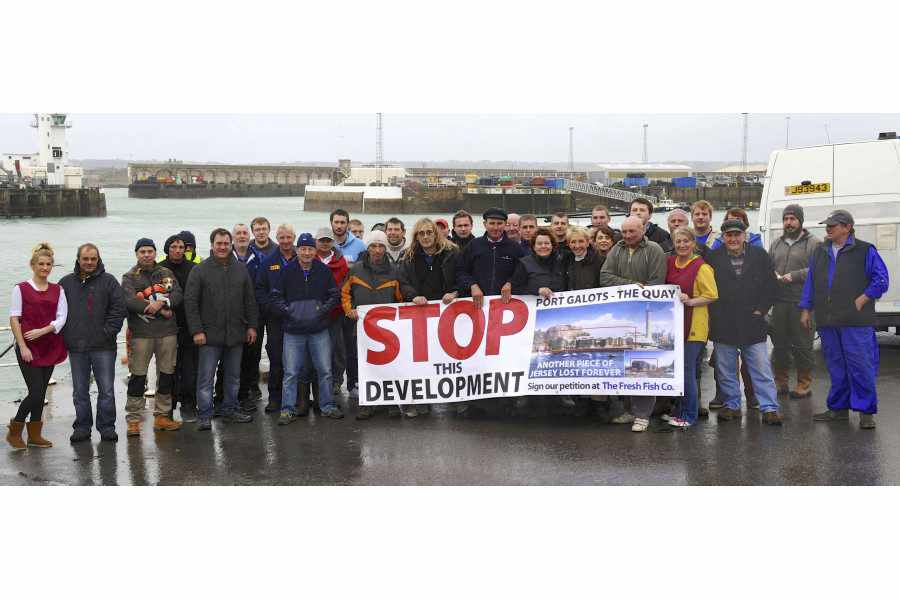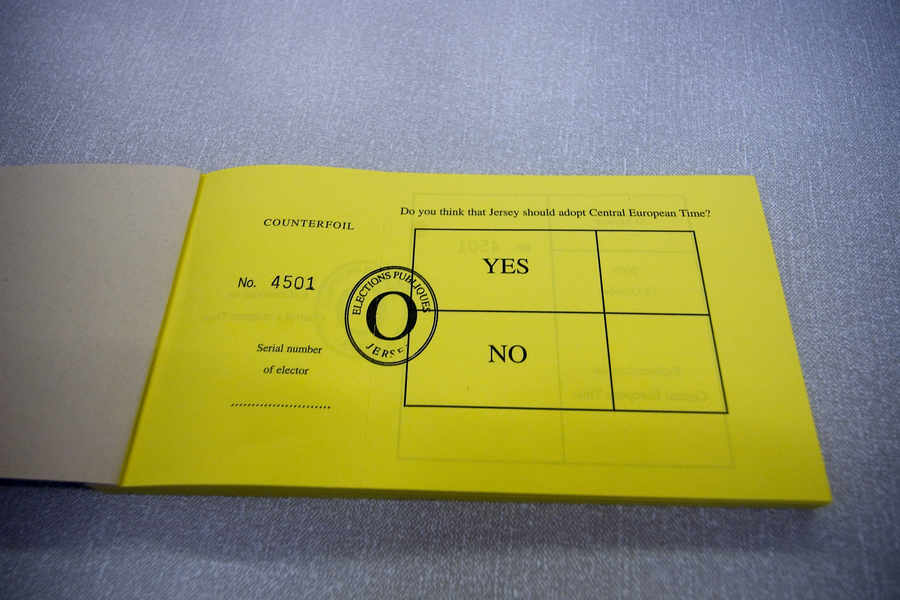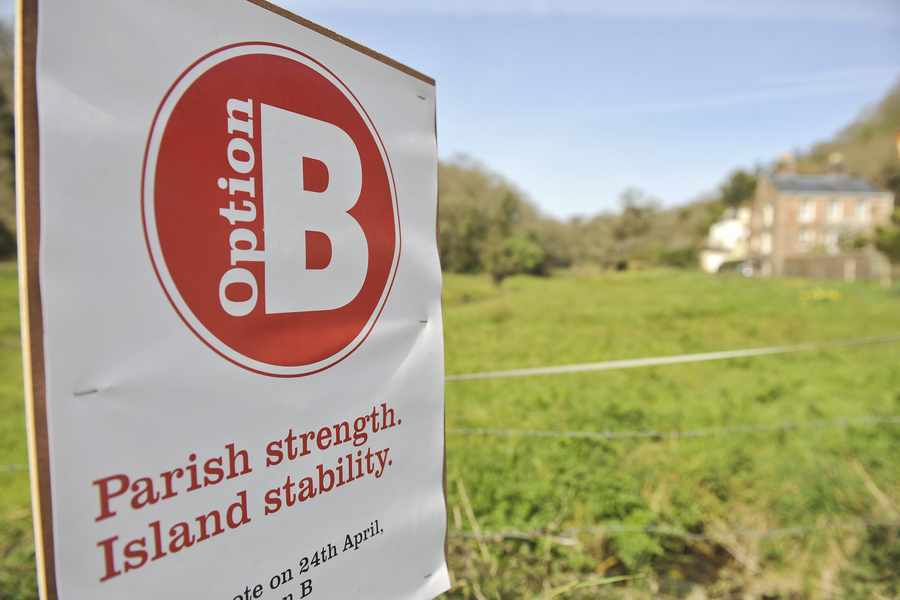- Backbencher Deputy Montfort Tadier wants referendum on planned finance centre
- Likens the controversial project to Plémont and Port Galots sagas
- Deputy believes majority of the public are against the scheme
- Should the finance centre be built? Take our poll below
A REFERENDUM could be held to give Islanders a chance to voice their opinion on whether the controversial Jersey International Finance Centre should be built.
Backbencher Deputy Montfort Tadier has lodged a proposition calling for the referendum in an attempt to give a final indication over the population’s appetite for the multi-million-pound six-office complex on the Esplanade car park.
He hopes that if there is a groundswell of public opposition the States will listen and reconsider the project, in the same way that public opinion helped to safeguard the Plémont headland and halt plans to develop the proposed maritime centre known as Port Galots near La Collette.
According to the wording of the proposal, the referendum would be binding. It calls for ‘no agreements for the development of office accommodation on the site should be entered into, and no preparatory building works should be started, unless the development proposals in question have been approved by the majority of those voting in a referendum’.

Deputy Tadier confirmed he had submitted a proposition, which also calls for any work on developing the finance centre to be suspended until the conclusions and recommendations of the Corporate Service’s Scrutiny Panel’s review into the project are published.
The Jersey International Finance Centre, which is being developed by the States-owned Jersey Development Company, has stirred public debate for years.
Yesterday, plans for the third building were given the go-ahead by the Planning Applications Committee following a number of objections from Islanders, including former States Members.
But according to rival developers C Le Masurier Ltd, that approval is likely to spark a third-party legal appeal from the business, which claims the plans contain more than 25 breaches relating to the Island Plan, Esplanade Quarter Masterplan and Waterfront Supplementary Planning Guidance that is in place.
Deputy Tadier said: ‘I think that the majority of people are opposed to the finance centre for different reasons and I think that it would be quite arrogant of the States to press ahead when there are serious reservations about the viability and desirability of the scheme.
‘Look at Port Galots. If it wasn’t for public opinion we would have had that scheme being imposed on us.’

The Deputy, a member of political party Reform Jersey, also said that the Island risked being left with a white elephant, adding that he hoped his proposition would prompt Islanders to contact their Deputies, Constables and Senators to give their views.
‘It may be that people love this development and want it to go ahead,’ he added.
‘But I think if it’s obvious that there’s little support for the finance centre plans maybe there won’t need to be a referendum. The Council of Ministers might say “we think we’ve got certain aspects of this wrong”.
‘The government doesn’t have a good track record with developing the Waterfront, so why should we put our trust in them to do this development?’

Time zones
The Island’s first ever referendum in October 2008 produced a result that showed the clear majority of those who voted (70/30) were happy to keep Jersey in sync with the UK’s time zone.
Islanders were asked whether they wanted Jersey to adopt Central European Time instead of Greenwich Mean Time, a move that would have placed the Island an hour out of sync with the UK but in line with the clocks in France.
Senator Jim Perchard brought the proposition to the States and argued that Islanders would benefit from more sunshine in the evenings.
He said that it would enable young people to play more sport, allow Islanders to enjoy barbecues later into the evening and benefit the environment. An anti-CET group, No To Time Change, led by former Senator Advocate Christopher Lakeman, argued that the move would be bad for Island businesses and that Jersey’s finance industry would suffer.
After the result was announced, the then Chief Minister, Senator Frank Walker, said that he was not surprised at the outcome and described it as a ‘foregone conclusion’. ‘It was a great example of democracy for Jersey to hold a referendum,’ he said. ‘But whether this was the right issue to hold it on I’m not so sure.’
However, the issue was not so widely split everywhere in the Island. It seemed that the closer you got to two of the Island’s largest beaches, the more people were in favour of later barbecues and surfing sessions, with the two most western parishes, St Brelade and St Ouen, showing a 60/40 split.
Of the 24,338 Islanders that voted in the Senatorial elections that October, only 544 chose not to vote on the referendum. Of those who voted on CET, 17,230 were against and 6,564 for the change.
The referendum cost approximately £20,000, four times the amount that was first predicted.
The money paid for the printing of ballot papers, ballot boxes, publicity and official notices and redeploying a member of staff in the Chief Minister’s office to administrate.
States reform

Despite voters sending a clear message to politicians that they want the States to be reformed, with fewer Members, super-constituencies and the scrapping of Senators all favoured by a clear majority, the States failed to act on the results of the Island’s second referendum in April 2013.
Around 80 per cent of people who turned out in the historic referendum on States reform agreed that such reforms – which included the removal of the Islandwide mandate after 66 years and scrapping nine States Members – should happen in time for the next election in October 2014.
However, the message was less clear when it came to the controversial issue of Constables with voting forced to a second round following a night of close results between Options A and B, which removed or kept the Constables in the States respectively, and a low turnout of just 26 per cent.
The States’ subsequent failure to implement the results of the referendum prompted the resignation of St Helier Constable Simon Crowcroft as chairman of the Privileges and Procedures Committee.
States reform 2

There were celebrations for the referendum Yes campaign in October last year as voters overwhelmingly backed the Constables’ automatic right to sit in the States – the second attempt to poll Islanders on States reform.
Nearly two thirds of those polled voted in favour of the current arrangement in a disappointing result for the vocal Vote NO campaign.
A total of 24,130 votes were cast in the Island’s second referendum on States reform, with 62 per cent voting yes to the question of whether the Constables ‘should remain as Members of the States as an automatic right’.
St Helier was the only parish to return a ‘no’ vote, by a margin of just 22 votes.
St Helier Deputy Sam Mézec, who has regularly spoken out against the Constables having an automatic seat in the States, believed that the referendum was ruined by a late change to the question, accusing the States Assembly of a ‘Zimbabwe-style stitch-up’.






